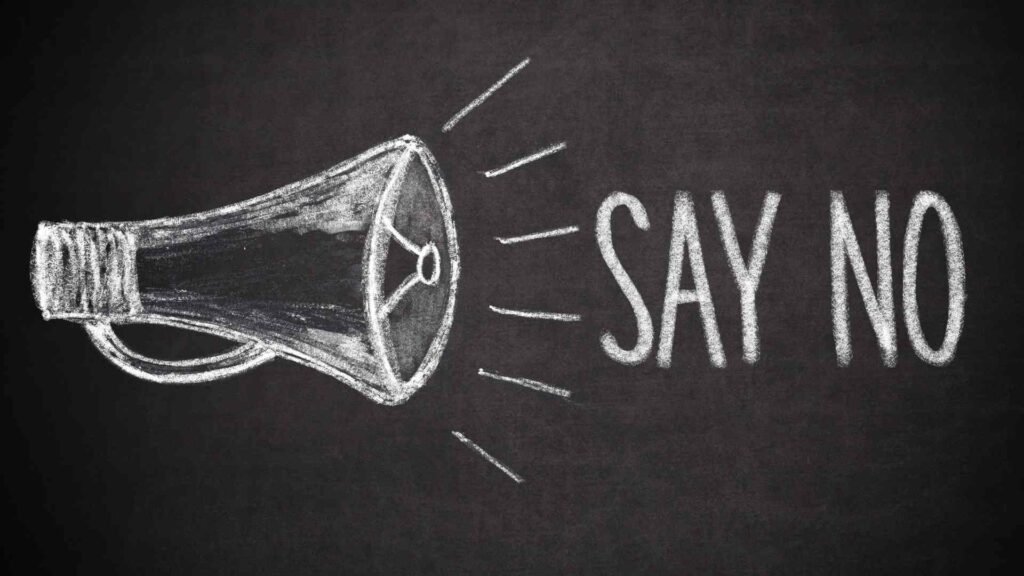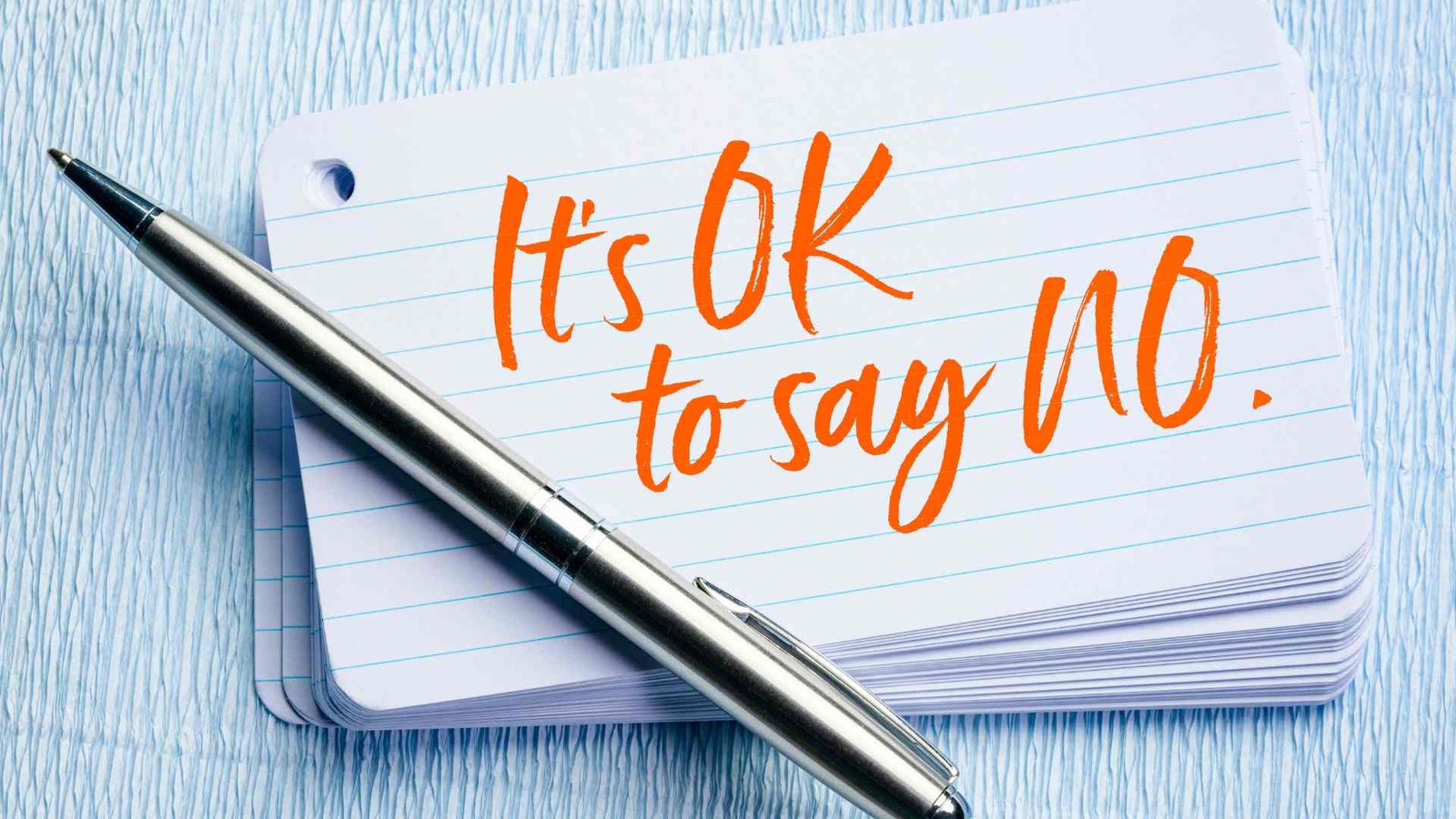In a world where saying “yes” often feels like the easiest and most acceptable response, learning to say “no” can be a game-changer, especially in the workplace. As an entrepreneur, you might feel compelled to say “yes” to every opportunity that comes your way. After all, every penny counts, and turning down business can seem like uttering profanity.
However, there is a strategic power in saying “no,” and it can transform your business for the better. While agreeing to every request might seem like the path to harmony and progress, it can lead to burnout, stress, and a lack of focus on what’s truly important.
Understanding the Importance of No

Saying “no” isn’t about negativity; it’s about focus. By declining less important or distracting requests, you free up resources for what truly matters. The word “no” might seem small, but its impact can be substantial. To appreciate its power, it’s essential to understand the cultural and psychological context that makes saying no so challenging. Leaders who master this art maintain a razor-sharp focus on priorities. They allocate time and energy efficiently, leading to better decision-making and increased productivity.
The Cultural Context of Yes
In many workplace cultures, there is an implicit expectation to be agreeable and accommodating. Saying yes is often associated with being a team player, while saying no can be seen as uncooperative or negative. This cultural bias towards agreement can make it hard to assert boundaries.
The Consequences of Always Saying Yes
Constantly saying yes can lead to overcommitment, reduced quality of work, and personal burnout. It can also create unrealistic expectations from colleagues and supervisors, making it harder to say no in the future.
The Psychology Behind Saying No
To effectively harness the power of no, we must address the psychological barriers that often prevent us from using this word.
Fear of Rejection and Conflict: One of the main reasons people avoid saying no is the fear of rejection or conflict. We worry that refusing a request might damage our relationships or cause a backlash.
The Desire to Please: Many people strongly desire to be liked and please others. This can lead to a pattern of agreeing to requests even when it’s not in our best interest. Recognizing this tendency is the first step toward change.
Benefits of Saying No
Saying no isn’t just about avoiding negative consequences; it also brings several positive benefits that can enhance both personal well-being and professional success.
Protecting Your Time and Energy
By saying no to tasks and commitments that don’t align with your priorities, you can protect your time and energy for the things that matter most. This can lead to higher quality work and greater satisfaction.
Executives who strategically decline meetings can free up to 20% of their time for critical thinking and leadership duties. Saying “no” isn’t just about rejecting; it’s about creating space for higher-priority tasks and decisions.
Fostering Respect and Trust
When you say no appropriately, you demonstrate that you have clear boundaries and a strong sense of self-respect. This can earn you respect from others and foster trust, as colleagues know you are honest and straightforward.
Appropriately saying “no” sets a precedent for open communication, mutual respect, and realistic expectations in the workplace. As a leader, your ability to decline strategically encourages a more conscious and engaged team dynamic.
Enhancing Focus and Productivity
By not overloading yourself with too many tasks, you can maintain better focus on your key responsibilities. This enhanced focus can significantly boost your productivity and the quality of your work.
Strategies for Saying No Effectively
Knowing the benefits of saying no is one thing, but putting it into practice requires skill. Here are some strategies to help you say no effectively and respectfully.
Be Honest and Direct: When you need to say no, be clear and direct about your reasons. Honesty is appreciated, and it helps to avoid misunderstandings. For instance, you might say, “I can’t take on this project right now because I need to focus on my current workload.”
Offer Alternatives: If possible, provide alternatives or suggest someone else who might be able to help. This shows that you are still supportive and willing to contribute differently.
Use Empathy and Understanding: Acknowledge the importance of the request and show empathy. For example, “I understand this project is crucial, but I currently have other commitments that I need to prioritize.” This approach helps maintain positive relationships.
Practice Assertiveness: Assertiveness is about standing up for your own needs and rights while respecting others. Practicing assertiveness can help you say no confidently without feeling guilty.
The Long-Term Impact of Saying No
The ability to say no can have profound long-term benefits for both individuals and organizations.
Creating a Healthy Work Environment: When people are empowered to say no, it contributes to a healthier work environment. Employees feel respected and valued, and the organization can function more efficiently with clear priorities.
Promoting Work-Life Balance: Saying no is crucial for maintaining a healthy work-life balance. It allows individuals to set boundaries that prevent work from encroaching on personal time, leading to greater overall well-being.
The Defining Moment
In the early years of my company, we were desperate for clients. Salaries, rent, marketing materials, and computer systems—all demanded our attention. Saying “no” felt impossible. But then something changed. We learned that turning down certain opportunities was essential for growth. It was a defining moment—a leap from chaos to a professionally managed firm.
Final Thoughts
The strategic power of saying no in the workplace cannot be overstated. It protects your time and energy, fosters respect and trust, and enhances focus and productivity. By understanding the importance of no, overcoming psychological barriers, and practicing effective strategies, you can create a healthier, more balanced professional life. Remember, saying no is not a sign of weakness but a strategic tool for success.


